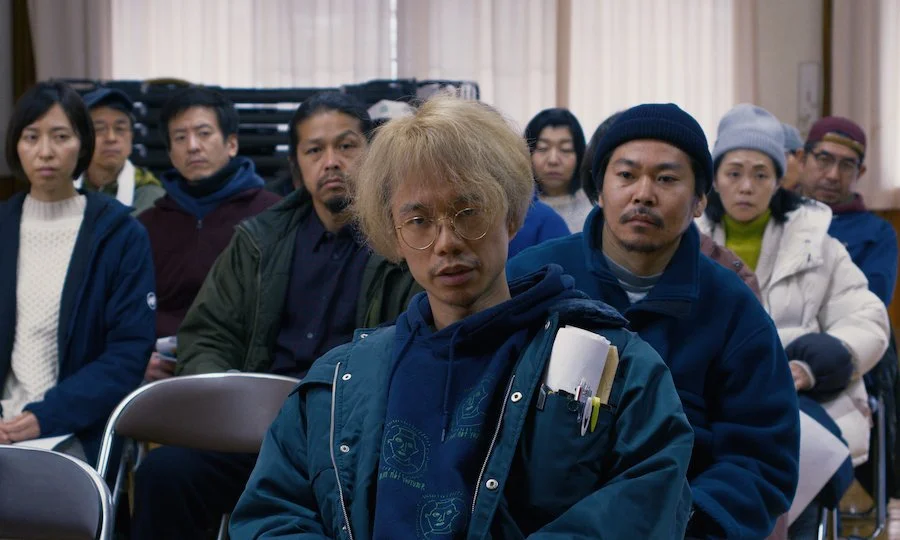Heavenly
Oscar winner Ryusuke Hamaguchi shifts gears for a pensive, cryptic, intentionally unfinished eco-drama.
Evil Does Not Exist
Director: Ryusuke Hamaguchi • Writer: Ryusuke Hamaguchi
Starring: Hitoshi Omika, Ryo Nishikawa, Ryuji Kosaka, Ayaka Shibutani
Japan • 1hr 46mins
Opens Hong Kong December 28 • IIA
Grade: B+
Director Ryusuke Hamaguchi does not work in half measures. He kind of got super-famous after winning an Oscar for the epic marriage drama Drive My Car, but that wasn’t the first time he let his camera drift among his characters for three languid hours to see what got dredged up. Which is not to suggest Drive My Car was anything but meticulously constructed. He conducted a similar experiment in the five-hour Happy Hour, about four thirtysomething Kobe women, their lives and the knottiness that comes with that, and again to a more accessible degree in the romantic anthology Wheel of Fortune and Fantasy. Hamaguchi’s documentary background may have layed the groundwork for his ability to snapshot essential emotional truths within impeccable compositions, and he does it again in Evil Does Not Exist | 悪は存在しない. This is a great film that also plays like a series of mesmerising compositions – chopping wood was never so engrossing – that is likely to drive some of us right up the damn wall for its narrative evasiveness and unwillingness to provide answers. Nonetheless it’s a low-key affecting environmental drama that will sit with you long after it’s over.
Evil Does Not Exist supposedly started life as a 30-minute short to go along with composer Eiko Ishibashi’s live score and morphed into a feature as Hamaguchi shot and shot and shot, before giving up on the short idea. The result is an entrancing pseudo-tone poem (for a place instead of a story) that’s the quietest shout from the rooftops of the year. It’s just unclear what Hamaguchi is shouting. Though in fairness it doesn’t really matter.
We start with a slow ride through the forest, watching the trees from below as photographed by Yoshio Kitagawa and set to Ishibashi’s stirring and equally lulling score. The scene abruptly cuts to the main character of Evil, Takumi (non-pro Hitoshi Omika), a forgetful widower with a young daughter, Hana (Ryo Nishikawa), who lives on the margins of so-called civilisation in Harasawa. It’s a small village with pure water, clean air and a tight community, and its authentic, off-the-beaten-path charm is like catnip to Tokyo tourism developers. Developers like Playmode, which is about start construction on a glamping resort that will – let’s just say it – gentrify all of Harasawa as well as pollute the shit out of the streams and groundwater in the area. It’s a done deal, but the corporate wogs that come to “hear the residents’ concerns”, Takahashi and Mayuzumi (Ryuji Kosaka and Ayaka Shibutani), find out the humiliating way the villagers will not be pushed around.
That is the very, very short version of a much more nuanced, more sneakily complex story about what feels like a meditation on our collective, innate conflict with nature. The film is laced with a sense of dread, of foreboding, that primes us for an explosion that never happens, and that’s Hamaguchi’s trick. Tension hovers on the periphery of Evil Does Not Exist, driving the story forward but giving every scene and every character room to breathe. A town hall meeting between the villagers and developers is beautifully cantankerous in that super-polite Japanese way. The workaday shorthand Takumi, his water-collecting, noodle-shop owning pal and the local hothead share is totally believable. As is the DGAF Playmode boss who tells Takahashi and Mayuzumi to give Takumi some sake and win him over – via Zoom. The observational style just makes it all more obvious. And foreboding, particularly in the last act when all the players collide. Now, the way Hamaguchi decides to stop the film – not end it, stop it – will be beyond annoying for some, simply confounding for others. It’s as ambiguous as the rest of the film when you think about, and so is kind of the only way it could end. — DEK



